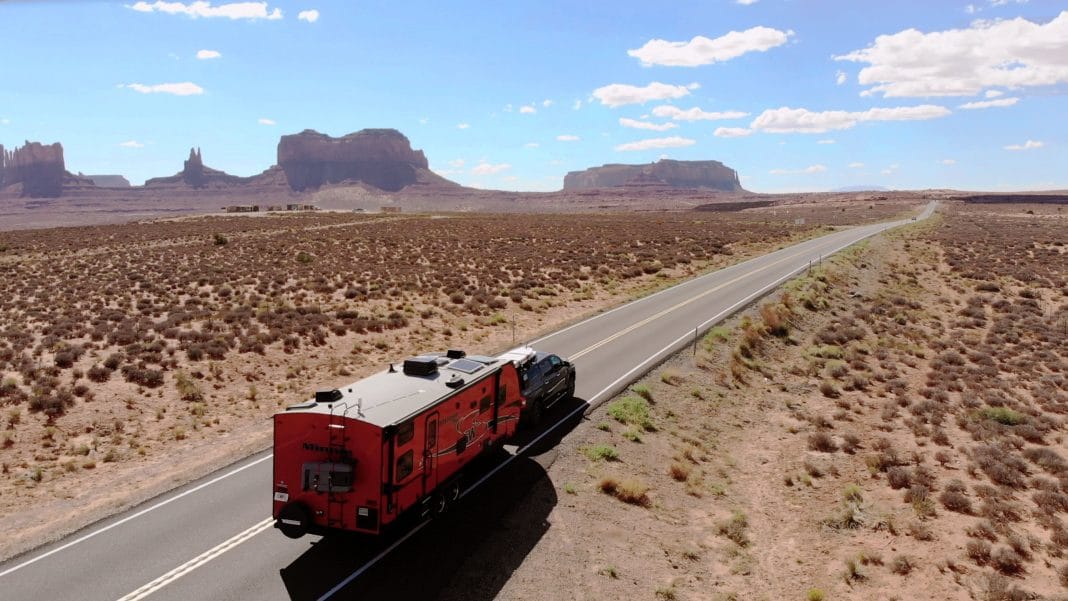One of the wonderful aspects of motorhoming is that we have so many options when it comes
to where we use our rigs as homes. Self-containment allows us to have the comforts and
services that we are accustomed to in regular houses, but the fact that we have an engine
and wheels gives us the freedom to choose where that home will be situated. The choices we
have regarding where to park our motorhomes are many and varied. Basically,there’s
something for everybody, ranging from the very simple and inexpensive to the very luxurious
and costly. Amenities vary from those that nature provides — sunshine, clear air and
solitude — to very complex man-made entertainment facilities, like golf courses, swimming
pools, entertainment centers, ballrooms, tennis courts and every conceivable creature
comfort. It is possible for motorhomers of modest means — and those who may not be poor,
but don’t like to spend money on campgrounds — to get by without spending anything for
overnight spots. Truck stops, malls or other large parking lots (particularly Wal-Marts),
rest areas, friends’ or relatives’ driveways, various free government campgrounds (city,
county, state, federal) — the possibilities for free places to stop overnight are many.
They usually aren’t very choice, nor do recommend them as a regular way to camp. Another
often-inexpensive category of RV parking places involves camping in the traditional sense:
amid woods, trees, lakes and rivers; hiking, fishing and making campfires; seeing and being
involved with nature. State and federal campgrounds range from very primitive to
full-service facilities. Some are quite inexpensive. For example, U.S. Forest Service
campground fees vary between $5 and $10 (half-price for Golden Age Passport holders.
However, many states have absolutely beautiful campgrounds with full-service sites that are
comparable in price to private campgrounds. The great advantage of state-park campgrounds
is that they are almost invariably located in the most beautiful or special places in those
states. A disadvantage for some people is the fact that they are usually located far from
“civilization” — McDonald’s, malls and supermarkets. For those who prefer private parks
that feature man-made forms of fun and games, there are many options. Often the amenities
consist primarily of things that appeal to kids, such as swimming, miniature golf and game
rooms, and are moderately priced. Family campgrounds are popular in heavily trafficked
tourist areas, such as Myrtle Beach, South Carolina; Mount Rushmore, South Dakota;
Gettysburg, Pennsylvania; Gatlinburg, Tennessee; and other interesting places. A growing
group of campers seldom use the wheels of their RVs. They rent spaces in campgrounds on an
annual basis and leave their rigs there much of the time, visiting on weekends and
vacations. Actually, those campgrounds become little villages, communities where families
share their leisure times with campground neighbors. I’ve seen motorhomes in campgrounds
that have been parked so long that weeds have grown up around them — definitely not the
way to treat an expensive motorhome. A phenomenon of recent decades has been the upsurge of
adults-only RV parks. That movement parallels the growth of adult retirement communities.
Generally an age limit (usually 50- 55) restricts tenancy, and children aren’t allowed. The
rationale is that a lot of retirees prefer a childfree environment. Amenities and
activities are geared to the preferences of those older folks. Snowbird parks in the Sun
Belt almost invariably impose an age limit. The present development of ultra-deluxe
motorhome resorts that include unbelievably plush amenities, such as golf courses, fine
restaurants and ballrooms, is mind-boggling. Some with huge spaces even offer custom-built
activity buildings and elaborate patios with built-in barbecues, refrigerators and sinks
with hot-and-cold water. Lot prices at some of them exceed $200,000. They are definitely
for rich folks, many of whom have motorhomes that cost more than a million dollars. In
short, there are campground options that fit the needs of nearly everyone and every
pocketbook. No one should feel that motorhoming is a lifestyle that is geared to the needs
or whims of any particular segment of our population. Fortunately, campground directories,
such as Trailer Life’s and Woodall’s, give us the necessary information to choose the kind
of accommodations that fit our individual needs. It just takes a little homework to plan
trips that take you to campgrounds that fit your style.
Lifestyle: Different Strokes for …
Originally Published in MotorHome Magazine

Do not have an account? Create New Account

